By Pranav Joshi
While the world increasingly fell prey to apprehensions against globalization, tolerance and diversity, the cinema still managed to give voice to artists from across the world. The thriving medium helped solidify the notion that beneath the differences of gender, colour, language, culture and ideology, we are all sentient beings that can perceive, feel and give shape to our innermost desires if we choose to do so. These 26 films, across genres, countries and languages, drove home in innumerable ways the aphorism that we may not always become the individuals we set out to be, but every time our experiences will offer us unexpected glimpses into the abyss of our nature, if we let them. And it will be the choices we make then that will matter the most.
PS: Films are listed in alphabetical order because they are all unique in their style and intent and hence cannot be ranked amongst each other.
1.A Fantastic Woman – 21st Century, urban Chile’s prejudices and social injustices are uncovered in a heartfelt character study of a trans woman battling with the world’s rancorous perception of her intent and her ability to love unconditionally. Though director Sebastián Lelio jarringly veers off into metaphorical dream imagery in a clear departure from the otherwise realist aesthetic, his integrity in depicting the plight of a wronged woman without resorting to self-righteousness infuses the film with uncharacteristic empathy and affection.

2.A Ghost Story – One of the most humbling and cosmically pure experiences at the movies last year, David Lowery’s film extraordinarily manages to convey all of humanity’s search for redemption and closure through the lonely, spectral angst of a solitary being nearly forgotten by time and fate.
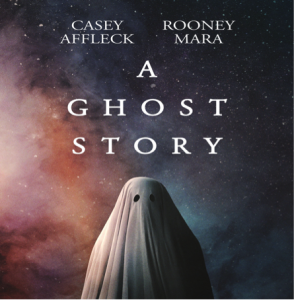
3.A Quiet Passion – Auteur Terrence Davies meticulously brings alive a female literary icon and eschews even the remotest judgement or sympathy while acknowledging the human behind the art and how both are inseparably attached to each other. Also featuring Cynthia Nixon, who gave the year’s best female performance in my opinion, the film goes much beyond mere period conjecture in envisioning Emily Dickinson, her inner life and her love for poetry.
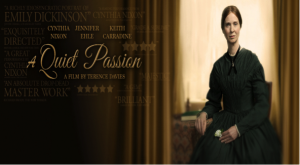
4.Angamaly Diaries – A raucous and free-wheeling journey through the chaotic, multi-ethnic socio-cultural landscape of a small town sporadically shaken from its slumber by petty turf wars amongst pig farming hooligans, Lijo Jose Pelissery’s Malayali film unabashedly reveals how violence can seem arbitrary and how it manages to rear its ugly head even when those calling the shots do all they can to mitigate it.
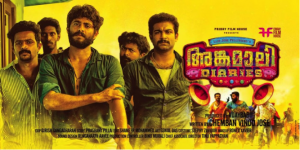
5.Before Summer Ends – More a documentary than a fictional construct, this unassuming film about three Iranian students going off on a road trip in France pierces the veneer of masculine adventurism to reveal deep insecurities amidst a forlorn sense of regret of being far away from the homeland. Working brilliantly as a purely observational film, clever editing ensures that a uniform pace is retained, thereby making the film more than just arty vignettes haphazardly put together.

6.Blade Runner 2049 – Visually poetic and bathed in the sombre moods of existential conflict and abstract melancholia, Blade Runner 2049 is a sequel as unclassifiable and enigmatic as the original, if not better. Where it falters with its ponderous narrative, it surpasses in its staggering, ethereal and possibly indulgent exploration of space, atmosphere and rhythmic movement.
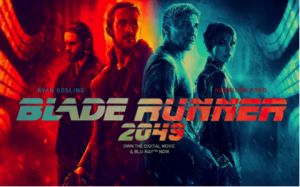
7.Call Me By Your Name – Luca Guadagnino’s richly textured, amorous and passionate film boldly traces the experiences of a teenager’s sultry and tempestuous trysts with men and women alike. Yet it reveals to be much more profound and bittersweet than is initially evident in a screen adaptation written by James Ivory. The film is akin to a soothing breeze which leaves just when it is needed the most. Its beauty is evoked by Guadagnino and Ivory through the film, who inherently understand that the best days of our lives seem everlasting until they fleetingly disappear to the nebulous realms of memory right before our eyes.

8.Columbus – With palpable chemistry between actors Haley Lu Richardson and John Cho being the mainstay despite achieving harmony between form and content, Kogonada’s supremely confident debut finds beauty, meaning and self-reflection in iconic buildings of stone and concrete. Modernism does not remain another intangible, nondescript movement in the field of art and architecture. It becomes a way of life.
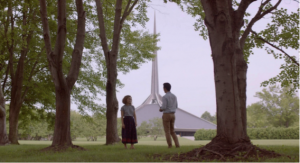
9.CRD – A gleeful, self-referential and overzealously surreal tour de force by Kranti Kanade, it undauntingly confronts the purpose, expression and even the fantastical “side effects” of practising art on the theatrical stage, thereby lending startlingly complex meaning to the seemingly harmless question, “What’s in a name?”.

10.Félicité – Alain Gomis’ observational portrait of life in the Congo feels extremely personal and poignant even when it encompasses the multi-dimensional, collective experience of a people ravaged by poverty, lawlessness and depravity. Gomis astoundingly soldiers on for hope despite bearing witness to all the grimness inequality has to offer to life.
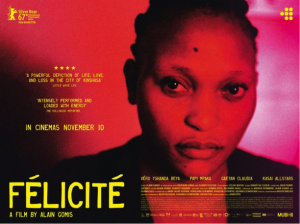
11.Good Time – A neo-noir thriller in which New York City, a fluorescent neon and concrete maze, is as much a plot driver as the characters’ impulsive and aggressive choices which lead them into random situations that increasingly spiral out of control. Supported by Robert Pattinson’s stellar turn as a street-smart hustler desperate to raise money for his mentally ill brother and made unforgettable by the Safdi brothers’ assured hand, the film plunges headlong into the night to follow a world of crime, deceit and decadence even as its remorseless protagonist is faced with squirming out of one difficult situation after another until every possible escape route is blocked and the world finally closes in.
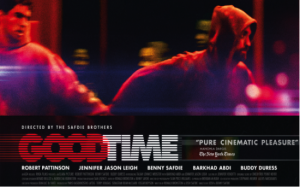
12.Heartstone – Although occasionally a bit self-serious, this intense and revelatory adolescent drama set in the harsh and unforgiving climate of Iceland’s countryside manages tremendous restraint even when the eventful narrative threatens to be eclipsed by melodrama. In the process, it offers an ambivalent and uncompromising look at the perils of uneven maturity.
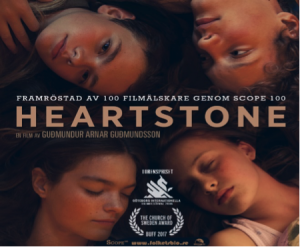
13.I, Tonya – Margot Robbie takes great effort to essay the role of the controversial sportswoman Tonya Harding, who became an object of universal ridicule as instantly as she became a national icon in this brisk, stylistically extravagant and emotionally heightened biopic. Not pandering to any one account amongst the barrage of contradictions, Craig Gillespie’s non-conformist film intersperses the ambiguous flashbacks with mock interviews of its characters imitating the real people they are based on. While not perfect by any means, the film goes out of its way to imbue its depictions of marital discontent with a tragicomic unruliness and violence that adds fuel to the fiery frenzy around Tonya’s personal life and her allegedly tough upbringing. Evoking Scorsese’s sense of rhythm and kinetic action at particular junctures, the film never fails to entertain and stupefy while following the failures and successes of a woman who always was more than just a news headline.
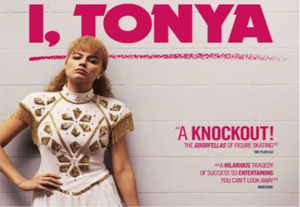
14.It Comes At Night – After a stunning debut film, director Trey Edward Shults returns with another harrowing, almost nightmarish psychological thriller. Wearing his ambition on his sleeves, Shults creates gut-wrenching tension in an apocalyptic setting where families live in isolated, self-sufficient homes and are zealously protective about all they love. With a mysterious disease devouring mankind, those who are barely surviving ensure their safety at all costs – even if it means spilling blood to save their own. The film, which ingeniously uses changing aspect ratios to compound the fear and dread, is an uncomfortable watch as families deal with mounting paranoia and combat uncertainty with gruesome violence. Every act is allegedly justified as self-defence when a father doesn’t know if he’ll see his son and wife alive the next morning in Shults’ fictional world. All that is needed, it seems, for us as a species to reveal our most primal, dastardly and abominable traits is a catastrophe we can barely cope with.
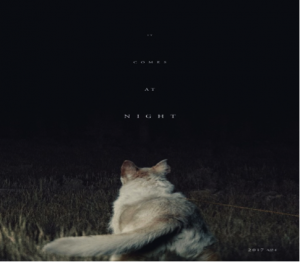
15.Loveless – Working brilliantly as a powerful allegory about dysfunctional bureaucratic governance and jingoism in contemporary Russia as well as an intimate tragedy of a former couple losing their son amidst a spiteful divorce, Andrei Zvyagintsev’s serious, complex drama is compelling even when it is desolate.
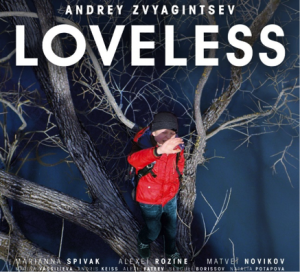
16.Mudbound – Reminiscent of inter-generational epics characteristic of vintage Hollywood, Dee Rees’ formal choice of subliminal voice-overs proves to be her biggest asset in conceiving a multi-faceted saga dealing with themes of race, war, prejudice, poverty and sacrifice in which the power of making choice is what separates cruelty from kindness. Taking place in a time when that entire power was in the hands of one race which systemically stifled another in all aspects of civilian life, the film is extremely careful in capturing well-rounded experiences across races. Bolstered by strong characterization and a great cast, Dee Rees’ film never gives in to populism and yet makes strong statements about post-War America’s socio-economic fractures and the toll they took on the people who withstood them at the cost of those who worsened them.
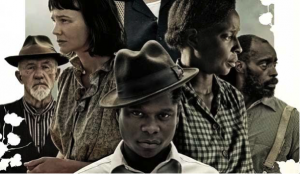
17.On Body & Soul – Lyrical, endearing and mystical, Ildikó Enyedi’s poetic film wonders whether our dreams and desires ineffably aid in strengthening soulful connections even while we keep slaughtering animals for food. Apart from being a thoughtful meditation on the nature of love and how it can battle loneliness, Enyedi’s film almost succeeds in forging a magical portal to a world where genuine emotional longing paves the way to seek what it means to be truly human.
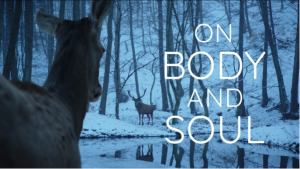
18.Personal Shopper – Another entrant to last year’s cinematic rumination on the paranormal, Olivier Assayas’ confounding film raises more questions than answers on how we can cope with loss and deal with notions of the afterlife. Powered by a near-transcendent turn by Kirsten Stewart, the film dabbles in the relationship between the corporeal and the spiritual.
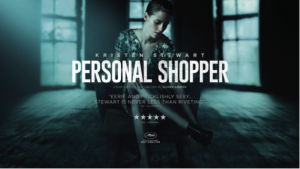
19.Raw – Julia Ducournau’s uncanny, intrepid and grotesque juxtaposition of cannibalism with a lurid quest for identity in a veterinary institute miraculously manages to become a cocky and brash allegory of indulgence and parental cajolery gone berserk.
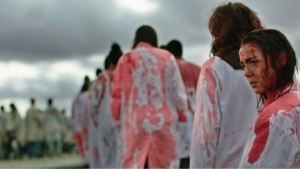
20.Summer 1993 – Painstakingly grounded in realism, Carla Simón’s unflinching cinematic translation of her own life results in a brutally honest, often painfully intimate portrayal of an extremely young girl developing her own mechanisms to cope with the death of both her parents. Though the narrative is bereft of overt drama, Simón’s profound understanding of how we occasionally stumble to discover our own character when lured by instant gratification make the film an endlessly compelling rumination on how equipped we are expected to be and can really be to deal with the worst that can happen.
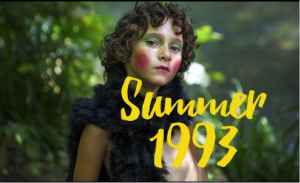
21.Thelma – Evoking the universal need to embrace our truest nature, Joachim Trier’s immersive fantasy of a young girl coming to terms with supernatural gifts that are as extraordinary as they are frightening is a stunningly conceived film. The film cleverly hints that the struggle for freedom can be a path of both darkness and light, yet what drives every human, especially those who reconsider their sexual orientation, is the promise of unfettered self-assertion.
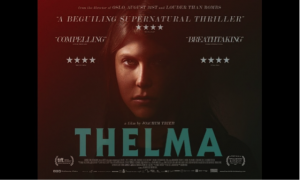
22.The Human Surge – Eduardo Williams’ slow paced, meditative debut film on the unsettling and invisible ways in which the Internet pervades mundane lives is an uneasy reminder of the way human society is pliant to the reception and assimilation of technology. While our proclivity to adapt and absorb itself isn’t a contentious trait, the way we lose ourselves, our fantasies and deepest desires to a burgeoning virtual world and become adrift and anchorless in the real one is indeed a seismic shift in how we perceive the world and form its image in our minds.
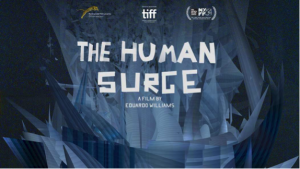
23.The Killing Of A Sacred Deer – References from Greek mythology are artfully woven into an unnerving, amoral premise which forms the core of the film. With a haunting performance by Barry Keoghan making the film’s increasingly eerie possibilities come true, director Yorgos Lanthimos adds another dark and brooding work to his cinematic obsession of charting humanity’s worst instincts and collective fears.
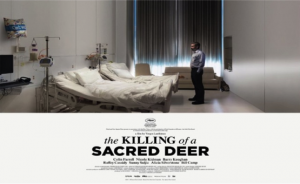
24.The Lost City of Z – James Gray’s grand, beautifully mounted and vividly shot film is a credible adventure drama while retaining a sense of mystery and an undercurrent of self-destructive dread. Charlie Hunnam stars as the titular explorer searching for a city which could very well be the figment of a hyperactive imagination. Gray meticulously stages his characters and ensures they aren’t eclipsed by the exotic gaze or a crowded narrative. By lending cinematic heft to the restlessness and self-doubt that accompany every venture into the unknown, Gray ensures that his film becomes something more astonishing than the sum of its parts.
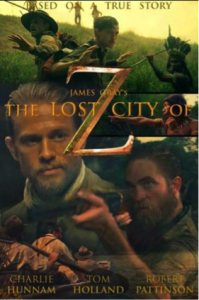
25.The Square – Ruben Östlund lets loose the most unhinged ideations of his creative prowess in this mordant satire on Sweden’s art scene by mercilessly calling out the hypocrisy, nascent elitism and effete nature of self-obsessed, wealthy art patrons and critics alike. Even though Östlund errs in thinking that a conscious lack of metaphorical respite will dampen the effect of all that he wants to convey, the film has enough substance to have a lasting impact on viewers, who will no doubt be caught unawares by the ludicrous masquerade on display – much like how self-styled connoisseurs gawk at museum exhibits.
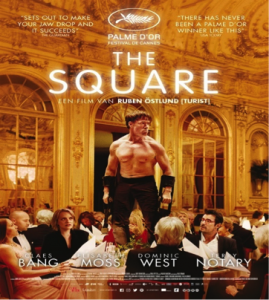
26.Thondimuthalum Driksakshiyum – Helmed by Dileesh Pothan and aided by an inventive, original and beguilingly hilarious screenplay by Sajeev Pazhoor, this film masterfully lays bare all the cobwebs and obscured cracks in an ethically compromised, free-for-all society where judicial and law enforcement systems are only as effective or flawed as the people who run them.
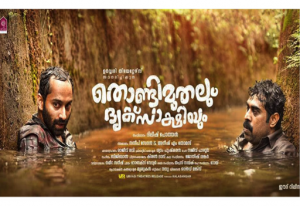
27.Twin Peaks: The Return – Is it television or 18 hours of unwieldy cinema? It is, in fact, ‘Lynchian’ and that is enough reason to stop classifying all the bizarre musings and dreamscapes that populate this work of art. For it is definitely easier to be entranced by the phantasmagorical aura conjured by David Lynch than assign myopic labels to its functional purpose. An experiment unlike any other, The Return occupies a psychological bandwidth hardly encountered in other media all year.
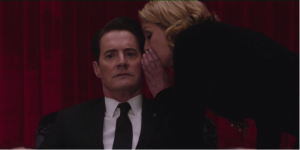
Special mentions –
- Anarkali Of Aarah
- Dunkirk
- Logan Lucky
- Muramba
- Newton



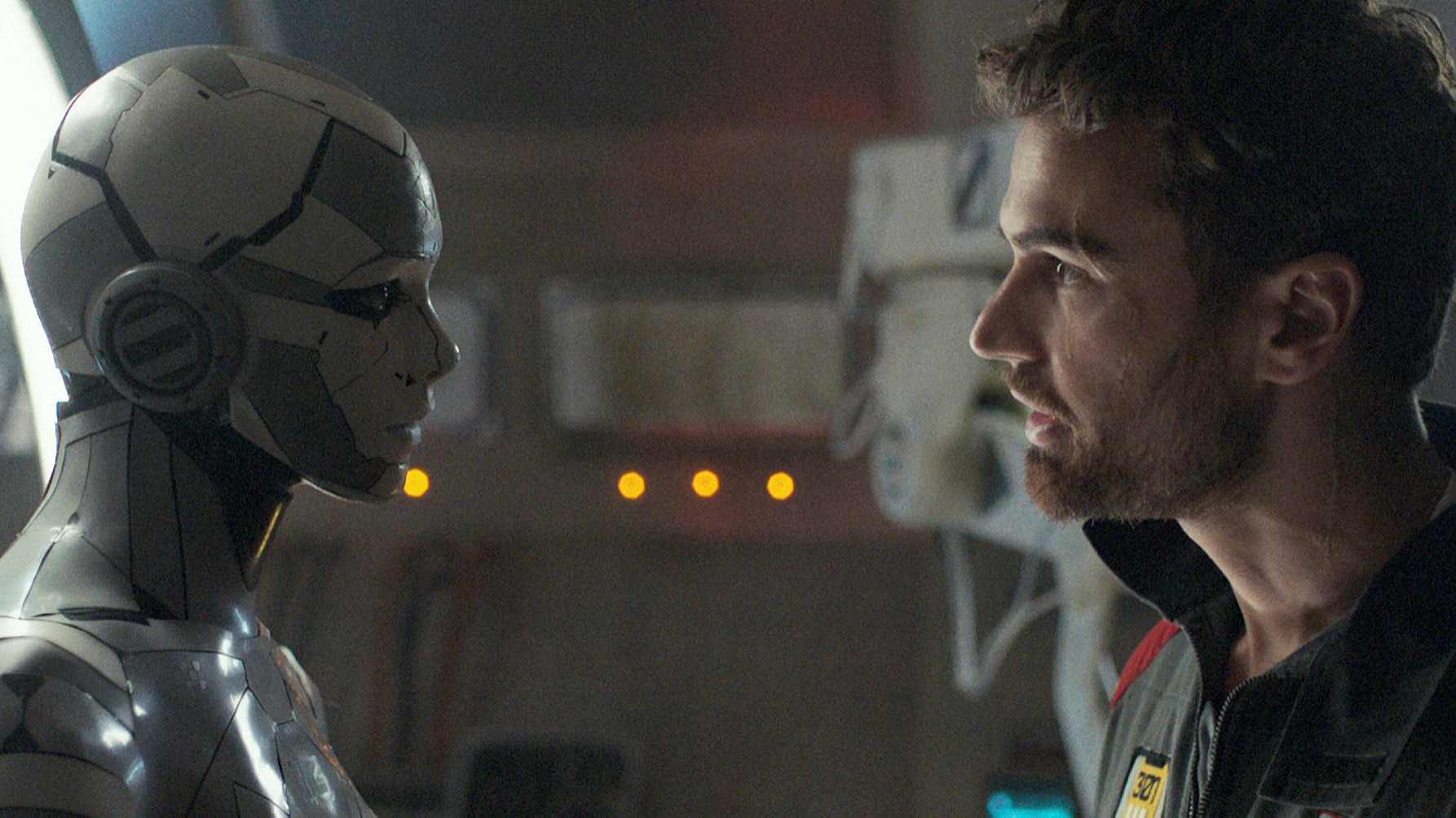

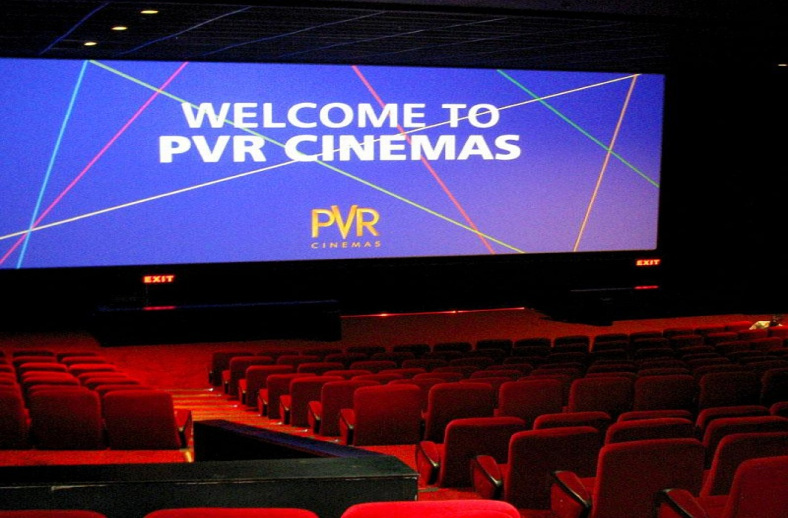



Leave A Comment
You must be logged in to post a comment.